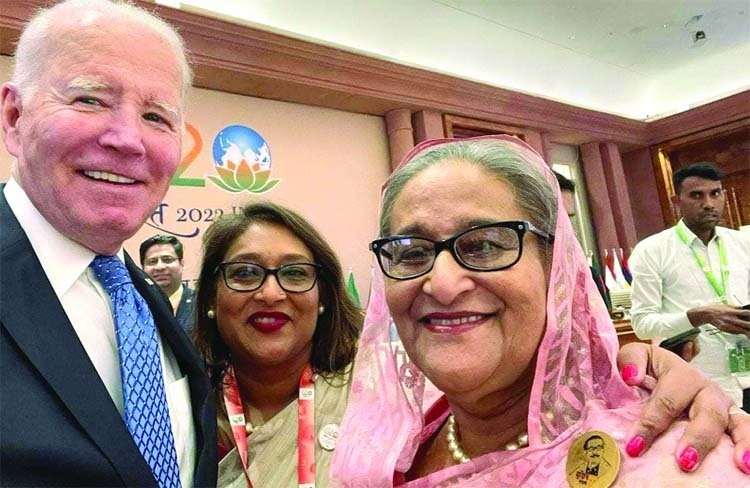Although the US has supported Bangladesh in combating Islamist extremism and providing aid during the Rohingya crisis, it has criticized Sheikh Hasina for her autocratic tendencies and imposed visa sanctions due to concerns about democratic practices.

Sheikh Hasina, the ousted prime minister of Bangladesh, has reportedly had her US visa revoked. She is currently exploring asylum options in the UAE and European countries after her request for refuge in the UK was denied.
Hasina fled Dhaka amid intense student protests demanding her resignation over the quota system for relatives of 1971 war veterans. The demonstrations escalated into violent clashes, resulting in over 400 deaths.
Despite a historically productive relationship with the US—marked by cooperation on counterterrorism and refugee issues—the US has increasingly criticized Hasina for autocratic tendencies and imposed visa sanctions over concerns about democratic practices.
Recent tensions between the US and Bangladesh have been evident, with the Biden administration labeling Bangladesh’s general elections as “unfair and not free.” The US had also announced visa restrictions for Bangladeshi officials and politicians ahead of the elections. According to the Daily Star, the Biden administration used Bangladesh as a “test case” for its value-based foreign policy, advocating for human rights, democratic principles, and free elections through public messaging, diplomatic engagement, and sanctions.
Bangladesh’s Strategic Importance to the US
Bangladesh is considered a key player in the US Indo-Pacific Strategy due to its strategic location in the Bay of Bengal and its growing economic significance. The US aims to strengthen security ties with Bangladesh through agreements like the General Security of Military Information Agreement and the Acquisition Cross-Servicing Agreement.
In 2021, the US was the largest importer of Bangladeshi products, with imports totaling $8.3 billion. US companies were the largest foreign investors in Bangladesh, accounting for 20% of the country’s Foreign Direct Investment (FDI). Over the past 50 years, US investments in Bangladesh have exceeded $8 billion.
Human Rights and Diplomatic Relations
Since Bangladesh’s independence in 1971, the US has been a significant ally, but it has voiced dissatisfaction over human rights and democratic issues. Sanctions were imposed on high-level officials of Bangladesh’s Rapid Action Battalion due to allegations of human rights abuses.
US Ambassador to Bangladesh Peter Haas, who has met with victims’ families and criticized human rights conditions, emphasized the Biden administration’s focus on democracy and human rights. Despite efforts by Dhaka to address these concerns, including establishing a Human Rights Cell under the UN and complying with US sanctions, the US State Department has continued to express concerns about declining democratic standards.
Sheikh Hasina’s Criticism of the US
Despite receiving Independence Day greetings from President Biden, Hasina has criticized the US for its own human rights record and accused Washington of plotting against her government. She alleged that the US aims to establish an air base in the region and manipulate Bangladesh and Myanmar, claims which US officials have denied.
Protests erupted in Washington DC during Hasina’s visit in April 2023 for a World Bank event, with demonstrators accusing her government of autocracy and economic mismanagement.
US Engagement in Bangladesh
The US remains Bangladesh’s third-largest trading partner, primarily importing Ready-Made Garments (RMG) and investing heavily in the energy sector. The US Agency for International Development (USAID) supports critical food security and health programs in Bangladesh and has played a key role in the Rohingya crisis. Additionally, the US has donated over 100 million vaccine doses to support Bangladesh’s national vaccination efforts.












